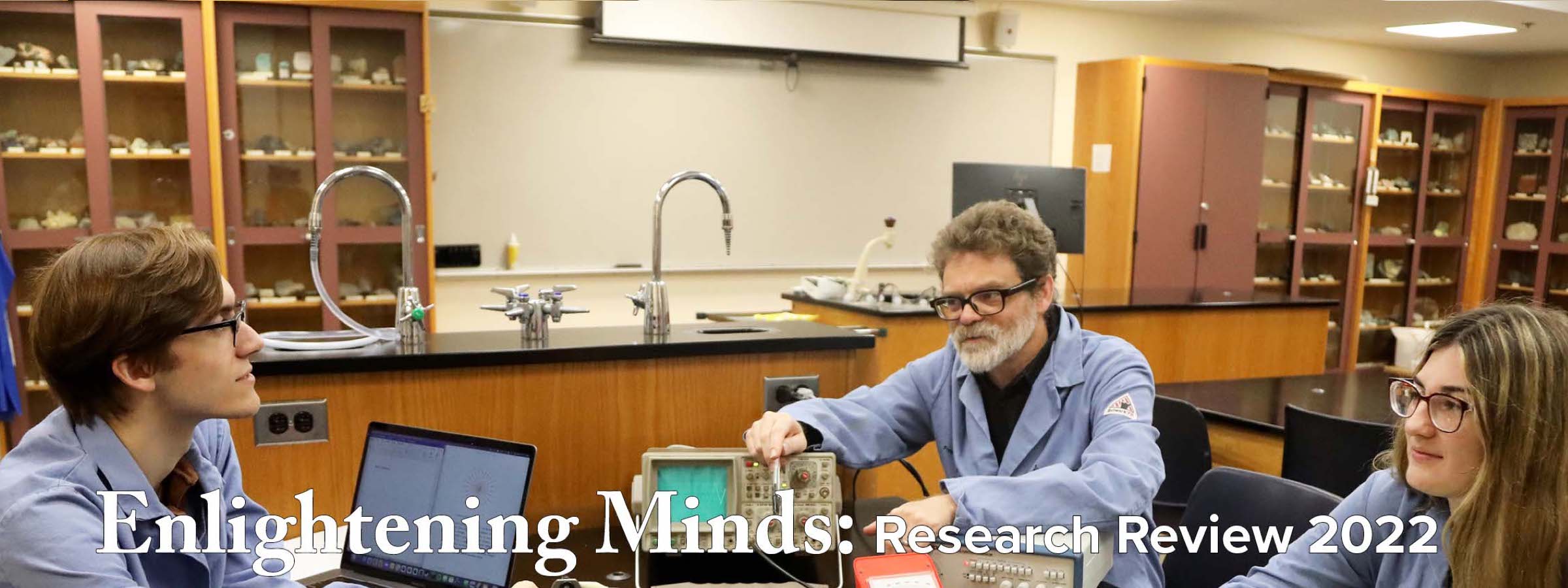
Physics Professor Dr. Fred Browning gets excited when he talks about the research, creativity, synergy and problem-solving he expects to see in Palm Beach Atlantic’s Bachelor of Science in Engineering. The program launches in fall of 2023, reflecting a robust job market for engineers and a growing number of students seeking engineering education within a Christian worldview.
“All the pieces are in place,” said Browning, who has led the development of the new engineering curriculum. It’s a challenging major of 130 credit hours, offering four concentrations: computer engineering, electrical engineering, engineering physics and general engineering.
The four-year curriculum will emphasize hands-on work and group projects, Browning said. “In every class that has a lab component, there’s going to be a group of students learning how to work together.” Under the guidance of their professors, he said, groups will study problems, then design and implement solutions, with group members taking the lead in different areas.
“And then in their senior year,” Browning said, “they’ll really take the training wheels off, in a two-semester capstone design course.
“Employers are looking for students with that kind of experience,” he said, noting that in recent years Palm Beach County’s booming economy has attracted numerous firms needing graduates from STEM (science, technology, engineering and mathematics) programs.
“We’re getting a lot of inquiries and a lot of enthusiasm from prospective students,” said Dr. Robert Lloyd, dean of the School of Liberal Arts and Sciences. He expects more than 20 students to enroll as freshmen engineering majors in the fall. In preparation, two classrooms will be revamped to become engineering labs. Architects have finished their drawings for the spaces: an electronics lab in MacArthur Hall and a prototyping lab in Borbe Hall.
Entering students will need strong math skills, as they’ll “start right off with Calculus 1,” said Browning. In their first semester they’ll also take Introduction to Engineering, along with general education classes. The second semester will add a prototyping design class, using computer-aided design and 3D printers.
PBA’s engineering grads will be well-rounded, Lloyd said, with a program “embedded in a liberal arts university” and taught in small classes by professors integrating their Christian faith into their teaching. One of those classes in particular, Engineering Seminar, will tackle subjects such as ethics and how one’s faith impacts design and purpose.
In sophomore year, key classes will include physics and chemistry, with the upper-level engineering courses beginning in junior year. As students work their way up through the curriculum of this new major, the university will expand its faculty with new hires in engineering. In addition, Lloyd and Browning have established a collaborative relationship with nearby Florida Atlantic University, so that PBA students might take some very specialized courses at the FAU campus.
PBA’s program received approval from the Southern Association of Colleges and Schools Commission on Colleges in October of 2022. Lloyd credited Browning for his “tenacious and enthusiastic” research and program development leading up to that milestone. “I was just thrilled at how Fred has risen to the occasion on this,” he said, “and I think engineering will be a great success here.”
Photo above: Physics Professor Dr. Fred Browning in lab with students Sebastian Darocha and Allison Cool.